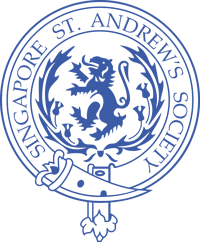Celebrating Scottish Heritage in Singapore
Welcome to the Singapore St. Andrew's Society
Join us in our mission to preserve and promote the rich traditions of Scotland while building a vibrant community in Singapore.
We are rebuilding our website. The following content is placeholder only. Look foward to the complete website content in the coming weeks.
Our Mission and Heritage
Our Activities and Events
Fostering Community and Support

Cultural Celebrations
We host events such as Burns Night and St. Andrew’s Day, bringing together members to celebrate Scottish traditions with music, dance, and cuisine.
Social Gatherings
Regular meet-ups and networking events provide opportunities for members to connect, share experiences, and build lasting friendships.
Charitable Initiatives
Our society is committed to giving back, organizing fundraising events and supporting local and international charities.
Educational Workshops
We offer workshops and talks that delve into Scottish history and culture, enriching our community’s understanding and appreciation of our heritage.
What Our Members Say
“Being part of the Singapore St. Andrew’s Society has been a truly enriching experience. The events are always well-organized and offer a wonderful taste of Scottish culture.”

John MacGregor
Long-time Member
“The society has given me a sense of belonging and a connection to my Scottish roots, even while living abroad.”

Fiona Campbell
New Member
“I appreciate the society’s commitment to community and charity. It’s a great way to meet like-minded people and make a positive impact.”

Alastair Stewart
Event Volunteer
Upcoming Events
Burns Night Celebration
January 25, 2024

FREE
Highland Games
March 15, 2024

FREE
St. Andrew's Day Gala
November 30, 2023

FREE
Scottish Ceilidh Night
February 10, 2024

FREE
Snapshots of Our Heritage
Event Highlights and Memories
Join Our Vibrant Community
Become a part of the Singapore St Andrew’s Society and immerse yourself in the rich tapestry of Scottish culture. Participate in our exciting events and contribute to our mission of preserving heritage while building lasting friendships.




